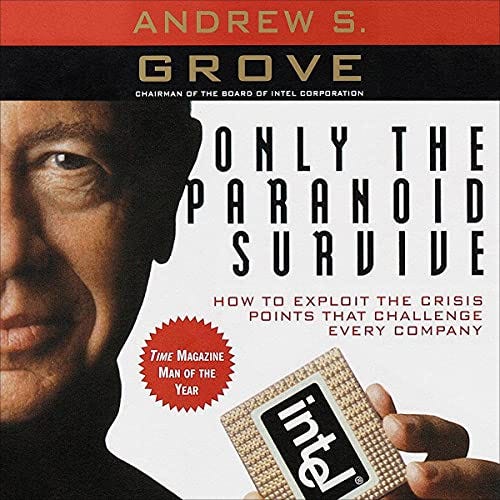Andy Grove was a founder & legendary CEO of Intel and wrote excellent books about managing technology companies. I just finished Only the Paranoid Survive which focuses on dealing with “strategic inflection points,” moments where something shifts and a company must react or risk fading into irrelevance.
A recent example of a strategic inflection point is Facebook’s reaction to the mobile revolution brought on by the iPhone:
Facebook recognized that the world was moving from desktop to mobile and made big changes to optimize their products for mobile (they bought Instagram, for example). In doing so they grew much more valuable than they would have been without mobile expanding their market.
But one can imagine an alternative history where Facebook’s leadership buried their head in the sand and did not want to face the uncomfortable reality that they would need to make changes to their business to adapt. And in this case Facebook would have been beaten by a mobile-native social media company and faded away.
Grove wrote this book in the 1990s but the lessons are timeless and feel particularly relevant with the AI wave presenting a clear strategic inflection point to so many people and companies. Some of the points that most resonated with me are:
People tend to wait too long to react to changes, both when managing companies and managing their own careers: “It is rare that people make career calls early. Most of the time, as you look back, you will wish you had made the change earlier. In reality, a change made under the benign bubble of an existing job, when things are still going well, will be far less wrenching than the same change made once your career has started to decline.”
People who are close to the ground are the first people to know of potential strategic inflection points. Often senior management is the last to know. He writes that “snow melts first at the periphery,” and so it is important that leadership be in touch with the people who are most exposed to potential shifts in the market. In managing your own career, it is important that you keep your head up and stay aware of the world outside of your company.
When a company enters a strategic inflection point, he advocates for a period of experimentation where the company tries different things and then a period of “reigning in the chaos” where the leadership is very decisive and clearly articulates the new direction.
There is a whole section of him discussing whether or not the Internet represented a strategic inflection point and I loved it because it sounded so much like conversations around AI or cryptocurrency today. “After thinking about it quite a while, I felt that the phenomenon of connecting all the computers in the world has such a wide reach that it would affect a number of industries.”
This book left me feeling energized to try to look at the world objectively and think through the implications of big changes, especially AI.






Only paranoid survive. Evolution taught us it Is not the strongest of the species that survives but the most adaptable to change. I am back to school after spending a decade in accounting. Currently taking up master’s in analytics and AI and we have to write an essay about our thoughts on AI. Thanks for sharing this :) Will read the book!
I imagine that at most inflection points there are several or many possible courses of action. Those who decide (or guess) an action that leads to success may write about it in a way that is useful to others. Some may even acknowledge the role of chance and luck. A few whose decision led to failure may analyze what happened and write about it, again in a way that is useful to others, but most just remain silent.